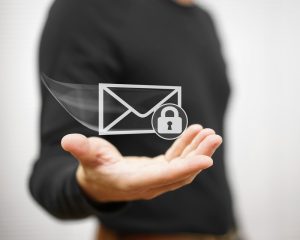 WHOIS is an important feature that can keep your information safe and secure online.
WHOIS is an important feature that can keep your information safe and secure online.
In an attempt to prevent fraudulent domain name registrations, you are asked to provide a mailing address. In fact, you will be asked to supply addresses for an administrative contact and a technical contact – but in most cases this will be exactly the same. You will also be asked for an email address, and sometimes a phone number.
These details are then stored in the WHOIS record that accompanies your domain name registration. The WHOIS record becomes part of a global directory, allowing anyone to check the availability of a domain name, when it comes up for renewal, and who to contact with administrative queries.
Because these details are open to everyone, some registrars do offer the option of a ‘private WHOIS registration’. This setting hides your contact details from public view. But why would you choose a private WHOIS registration?
To keep you home address private
Individuals who purchase domain names may not want their home address published publicly. This is definitely the case where their website hosts with sensitive or potentially embarrassing content.
It is also quite difficult to change your WHOIS record at a later date, so it makes sense to buy a private WHOIS registration from the outset.
To avoid spam
With a postal address, an email address, and a phone number attached, the regular WHOIS record is a rich resource for spammers. Simply by looking up WHOIS records, they can target you with spam, unwanted mail or cold calls, trying to sell you all kinds of junk. Worse still, cybercriminals could use this information as part of an ID fraud program or similar.
Hiding your address helps to reduce the rubbish you receive, and protect you from criminals.
To stop trolls
Even the most innocuous websites can fall victim to trolls, who abuse both owners and visitors, making their lives a misery. Taken to the extreme, this can manifest as ‘doxxing’, the act of sharing sensitive personal data about victims in public forums like 4chan or Reddit.
People who fall victim to doxxers may find that they receive hate mail, unwanted pizzas and taxes, or even visits from the police because their home address details have been shared online. By choosing a private WHOIS registration, you can help to reduce the likelihood of falling to this rare, but terrifying phenomenon.
One caveat with private WHOIS registration
Legally business websites must include the official business address somewhere prominent – and it is rare that registrars offer private registrations for companies. Small businesses may find some protection against the problems listed above by registering their domain against a post office box, or perhaps even their accountants address. It is not best practice to register a business website with a private WHOIS record.
Private WHOIS registrations are a valuable tool for helping individuals claim their address in cyberspace and maintain some degree of privacy. For more help and advice about your options, and how to protect your privacy online more effectively, please get in touch.
Leave a Reply